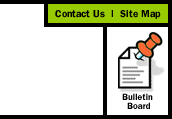 |
|
|
 |
 |
| UC2010 Steering Committee |
 |
| • |
Convene the UC2010 Steering Committee (Senior Vice President, Business and Finance) and: |
 |
| |
| – |
form new implementation committees |
|
|
| |
| – |
identify linkages to existing UC committees |
|
|
| • |
Identify investment priorities and resource requirements |
 |
| • |
Establish timeframes and deliverables for the components and activities associated with the New Business Architecture |
 |
| • |
Consult with business officers, chancellors, and others on new business architecture |
 |
| • |
Provide sponsorship, guidance, decision-making, and support of implementation activities |
 |
| • |
Establish Web site for progress reports, and soliciting input |
 |
|
| Business Portal Team |
 |
| • |
Develop a portal model that migrates from static Web pages to a database-driven environment with links to UC systems and campus data warehouses |
 |
| • |
Develop a prototype Business Portal template, based on best practices in industry and in higher education, for adaptation and use by the campuses and the Office of the President |
 |
| • |
Deliver consistent content for core business applications to UC staff via the Business Portal |
 |
| • |
Develop a navigation model that allows new staff quick and intuitive access to integrated business information, transactions and online training |
 |
|
| People Team |
 |
| Improve Recruitment and Retention |
 |
| • |
Promote UC as an employer of choice |
 |
| • |
Streamline the hiring process |
 |
| • |
Expand outreach to increase diversity |
 |
| • |
Create flexible benefits |
 |
| • |
Improve job design and classification |
 |
| • |
Institute market competitive compensation |
 |
Improve Professional Development and Productivity Strategies |
 |
| • |
Customize training approaches, including an online training and development curriculum to complement and enhance current training offerings |
 |
| • |
Expand training and development programs for core competencies in supervision/management, interpersonal skills, and basic technology |
 |
| • |
Expand and build upon professional development offerings in leadership and other professional skills for career mobility (classes, internships, fellowships, other experiential learning) |
 |
| • |
Create and build upon training programs and internships for staff to become information technology professionals (e.g., an in-house "IT University") |
 |
| • |
Develop new on-site and off-site initiatives to deepen skills in managing complexity |
 |
| • |
Strengthen orientation and acculturation initiatives to build community |
 |
| • |
Improve workforce planning, including labor management partnerships |
 |
|
| Process and Policy Team |
 |
| • |
Engage an external consultant to assist UC in an aggressive examination of current processes, policies and procedures for relevancy and value to the UC mission; identify the simplest, most effective processes among UC campuses and replicate them Universitywide |
 |
| • |
Redesign key business processes to the 80/20 rule and estimate the risk exposure levels that need to be accommodated |
 |
| • |
Incorporate simplified policies into the "how to" and "expert help" components of the New Business Architecture |
 |
| • |
Delegate authority and responsibility to the most-informed level of decision-making in the organization |
 |
|
| Enabling Technology Team |
 |
| • |
Develop an electronic commerce solution for the University of California |
 |
| • |
Allocate resources and implement the UC Employee Systems Initiative (ESI) |
 |
| • |
Identify self-service application opportunities for both staff and customers |
 |
| • |
Adopt industry technology architectures and standards for Web-based applications, electronic data interchange and wireless and mobile technology |
 |
| • |
Eliminate paper-based processes and forms within two years; make data digital from the start to facilitate e-commerce solutions |
 |
| • |
Ensure adequate authentication and security by implementing PKI and other digital security tools |
 |
|
| Financial Systems and Reporting |
 |
| • |
Implement common data-sharing protocols that link existing campus financial systems and provide Universitywide financial reporting and management information |
 |
| • |
Identify and define UC financial reporting requirements, particularly Office of the President and the Board of Regents |
 |
| • |
Provide access to all financial transactions and reporting via Web-based applications |
 |
| • |
Provide flexible tools for financial analysis and reporting, both at the campuses and Office of the President |
 |
| • |
Guarantee a secure environment for the sharing of financial information within the University and with external business partners |
 |
| • |
Provide Web-based training in the use of financial systems tools |
 |
| • |
Provide feedback mechanisms to staff on the design and functionality of the integrated financial system |
 |
|
| Internal Controls Team |
 |
| • |
Embed controls and related policies into business processes and business systems |
 |
| • |
Educate staff about risks and control issues in core business processes, particularly those that deliver critical or confidential information |
 |
| • |
Reassess internal controls regularly for proper alignment with business area strategies |
 |
| • |
Implement internal controls whose costs are in balance with the corresponding risk exposure |
 |
|
| Organizational Performance Team |
 |
| • |
Build performance metrics and internal control mechanisms into UC's key business processes and optimize them to the New Business Architecture |
 |
| • |
Use performance data to develop and implement action plans for improvement |
 |
| • |
Pursue performance measurement methodologies (e.g. balanced scorecard) that will reinforce a culture of continuous improvement by building on the UC Partnership for Performance initiative |
 |
| • |
Recognize and reward business unit improvement initiatives and results |
 |
| • |
Identify mechanisms to assess the effectiveness of the New Business Architecture |
 |
|
 |



